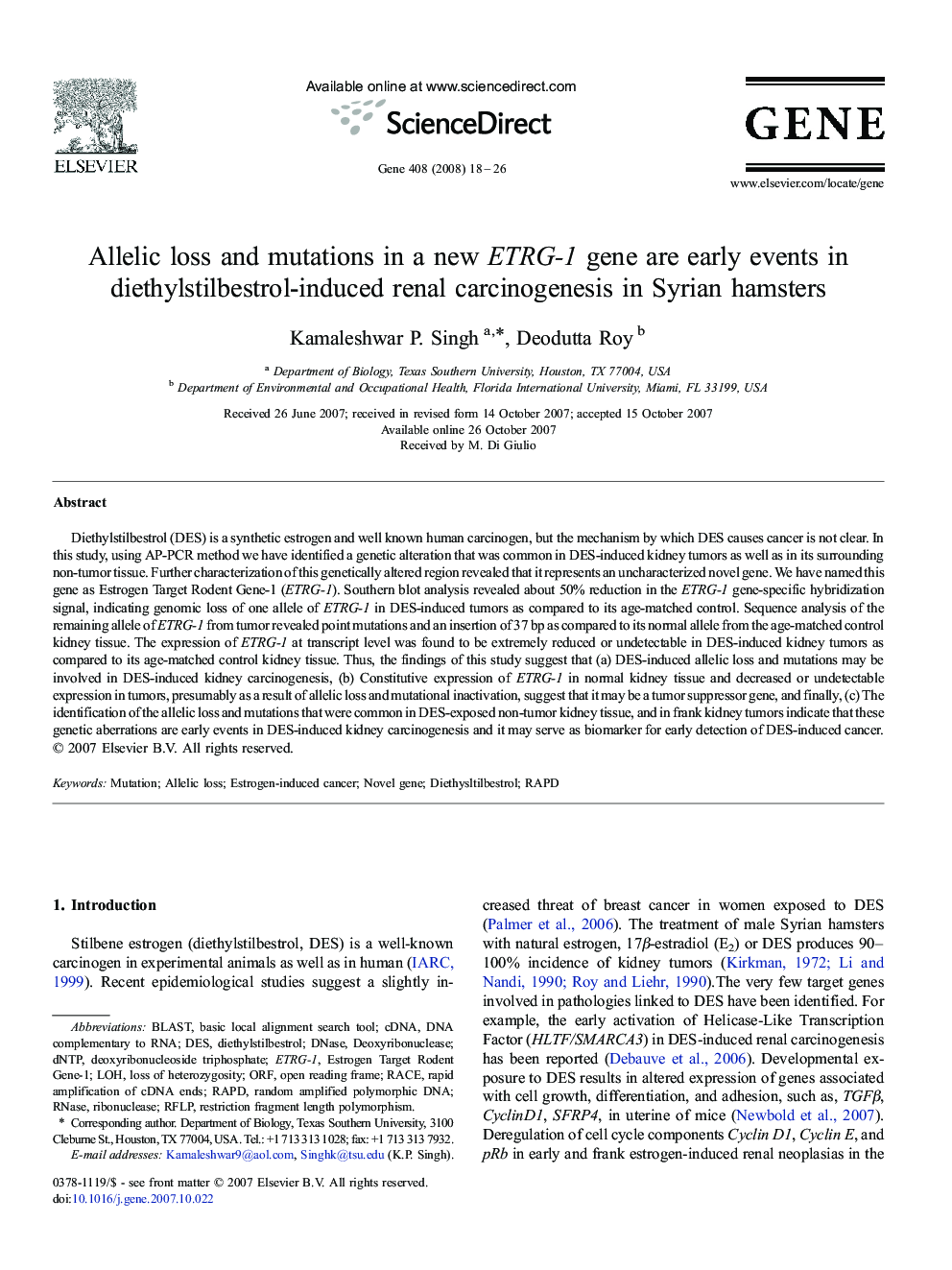| Article ID | Journal | Published Year | Pages | File Type |
|---|---|---|---|---|
| 2819373 | Gene | 2008 | 9 Pages |
Diethylstilbestrol (DES) is a synthetic estrogen and well known human carcinogen, but the mechanism by which DES causes cancer is not clear. In this study, using AP-PCR method we have identified a genetic alteration that was common in DES-induced kidney tumors as well as in its surrounding non-tumor tissue. Further characterization of this genetically altered region revealed that it represents an uncharacterized novel gene. We have named this gene as Estrogen Target Rodent Gene-1 (ETRG-1). Southern blot analysis revealed about 50% reduction in the ETRG-1 gene-specific hybridization signal, indicating genomic loss of one allele of ETRG-1 in DES-induced tumors as compared to its age-matched control. Sequence analysis of the remaining allele of ETRG-1 from tumor revealed point mutations and an insertion of 37 bp as compared to its normal allele from the age-matched control kidney tissue. The expression of ETRG-1 at transcript level was found to be extremely reduced or undetectable in DES-induced kidney tumors as compared to its age-matched control kidney tissue. Thus, the findings of this study suggest that (a) DES-induced allelic loss and mutations may be involved in DES-induced kidney carcinogenesis, (b) Constitutive expression of ETRG-1 in normal kidney tissue and decreased or undetectable expression in tumors, presumably as a result of allelic loss and mutational inactivation, suggest that it may be a tumor suppressor gene, and finally, (c) The identification of the allelic loss and mutations that were common in DES-exposed non-tumor kidney tissue, and in frank kidney tumors indicate that these genetic aberrations are early events in DES-induced kidney carcinogenesis and it may serve as biomarker for early detection of DES-induced cancer.
